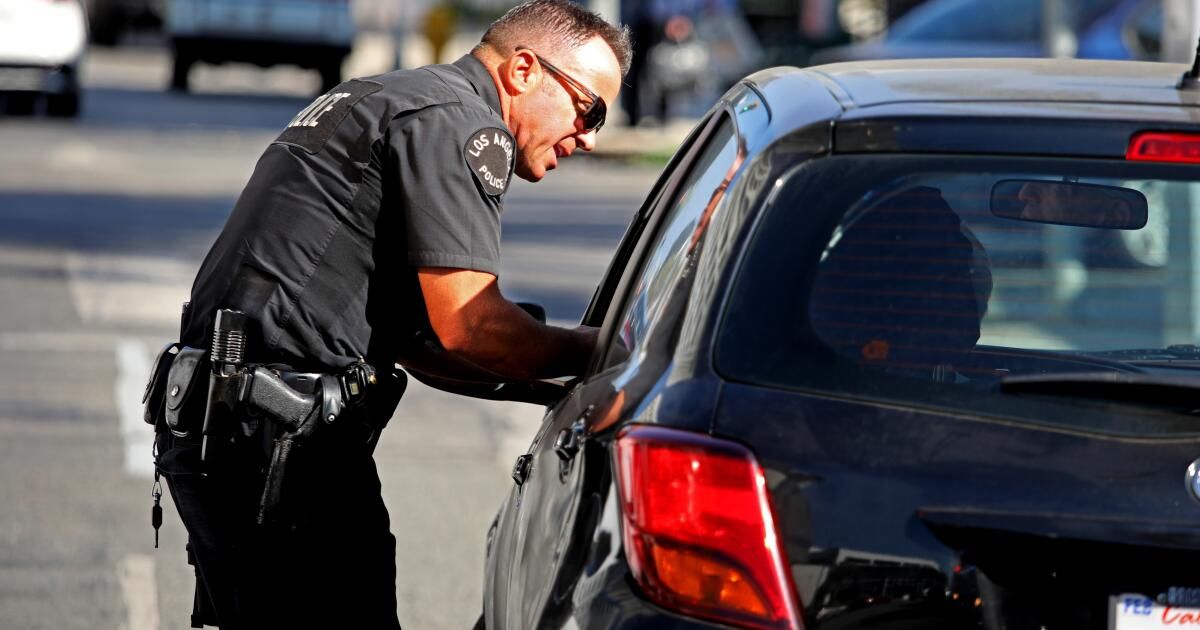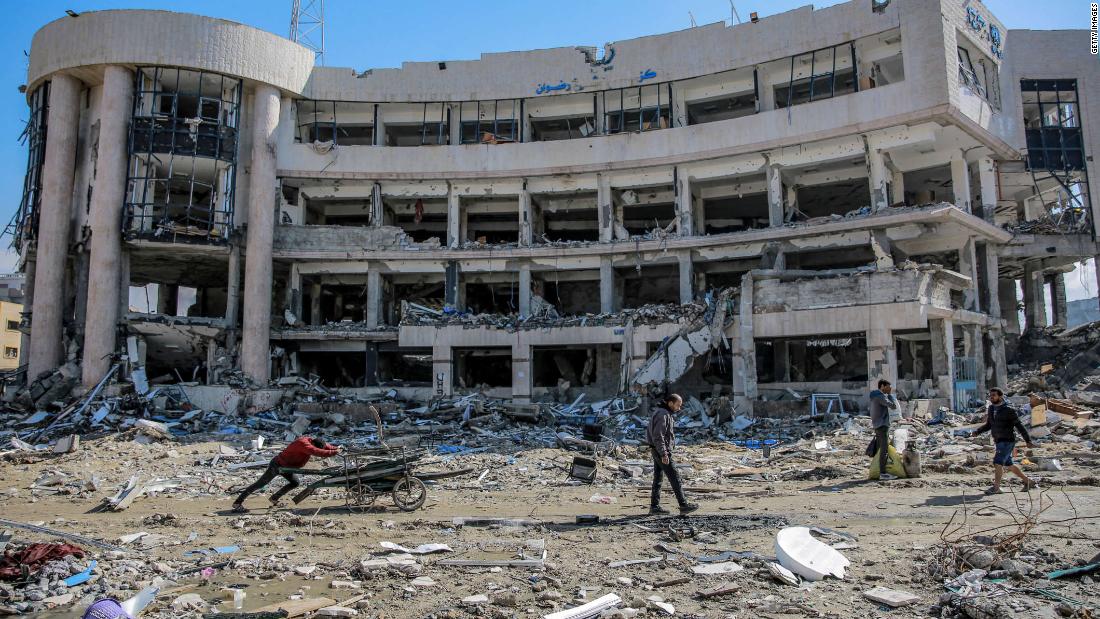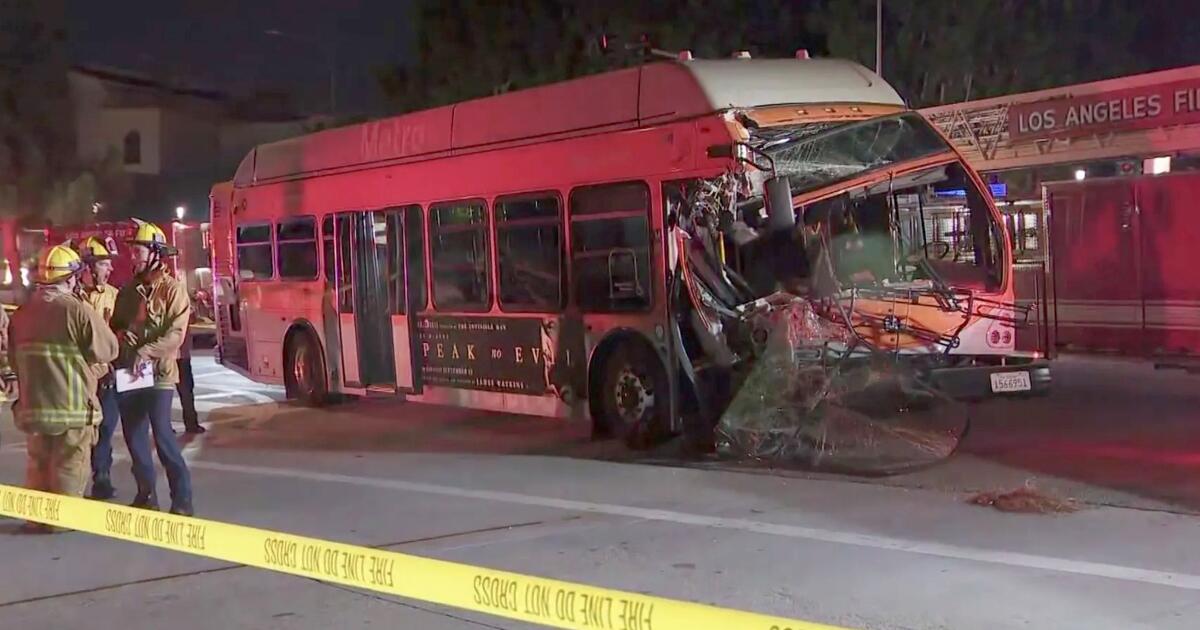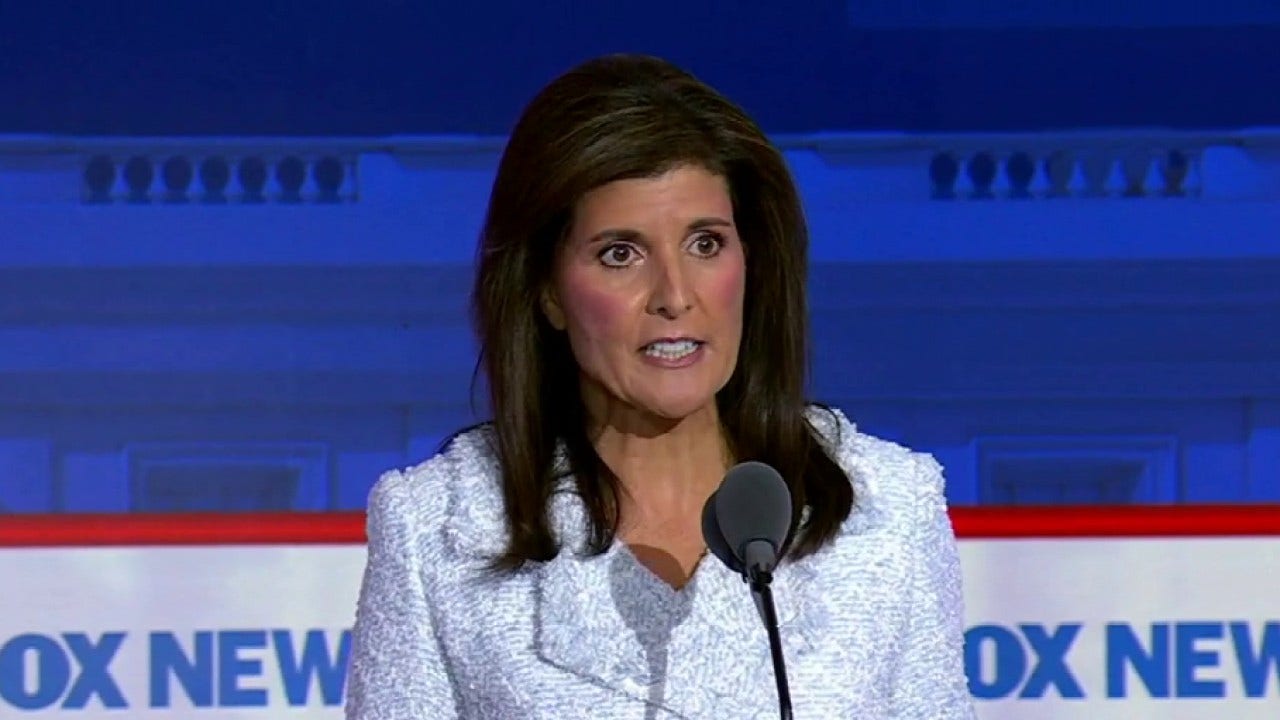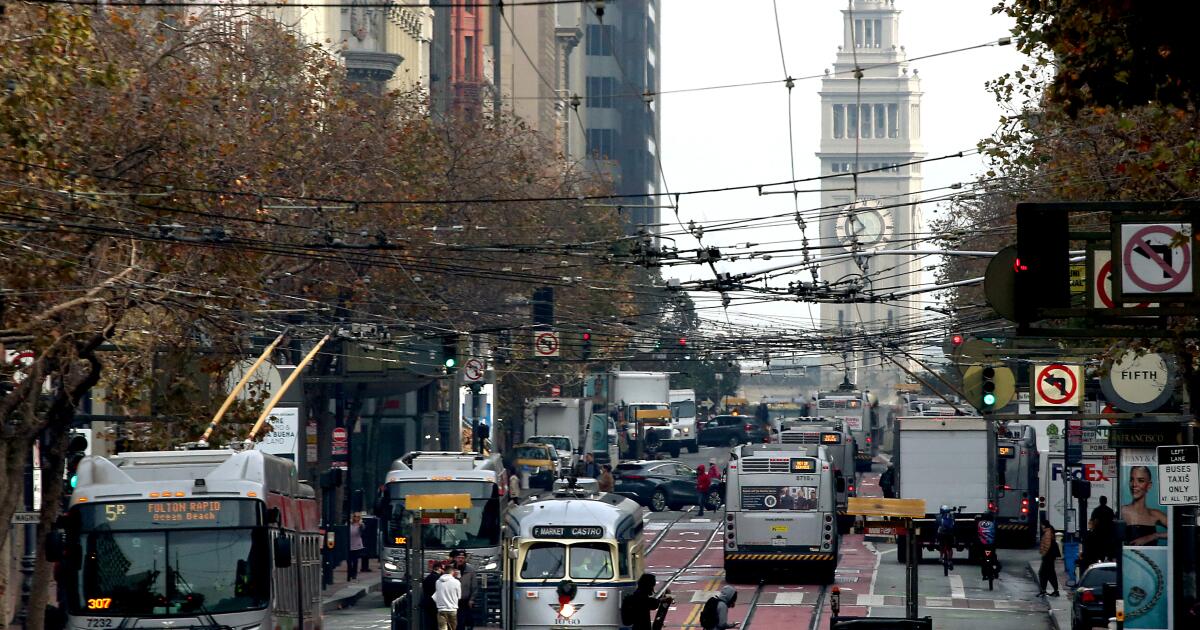A proposal to explore the possibility of removing Los Angeles police officers from traffic enforcement is stalled. Again.
The initiative to take on the task of directing police officers away from bad drivers is months behind schedule, frustrating reform advocates and some city leaders who argue that Los Angeles is missing a path to the future of traffic safety.
Local officials first raised the prospect during the national reckoning over racial injustice that followed the police killing of George Floyd in 2020, but the plan has moved slowly since then. Supporters thought they had won a major victory with the May 2023 release of a long-promised study outlining how unarmed civilian workers could do the bulk of law enforcement.
Last summer, the City Council requested follow-up reports from various city departments to figure out how to do this and gave a three-month deadline. But more than a year later, most of the promised feasibility studies have yet to materialize.
“I am very upset about the delay,” said Council President Marqueece Harris-Dawson, an early proponent of the proposal. “Generally speaking, when you try to do a big reform like this, at least some of the people who want to do the work are very motivated to change the status quo, and I don't think we have that here.”
He said there was everyone to blame for the continued delays, but he is encouraged by his conversations with officials from the departments involved that the studies will be completed, a precursor to legislation that would allow traffic safety to be reimagined.
At the same time, he said he still saw a role for armed police in certain traffic situations.
“I don't even think we need to stop people for vehicle violations, especially those that don't pose any risk to public safety,” he said, before adding, “If someone is going 90 miles per hour down Crenshaw Boulevard, that person should be stopped immediately and they should be stopped by someone with a gun.”
In a unanimous vote in June 2024, the council ordered city transportation staff and other departments to return within 90 days with feasibility reports on the cost and logistics of numerous proposals, including creating unarmed civilian teams to respond to certain traffic problems and investigate accidents. Ideas were also being explored to limit fines in poorer communities and put an end to minor infractions, such as expired tags or air fresheners hanging from the rearview mirror.
Of the dozen requests made by the council, only two reports from the city's transportation department have been completed so far, officials said.
Both studies — one evaluating parking and traffic tickets, and the other looking at how so-called “self-enforcing infrastructure,” such as adding more speed bumps, roundabouts and other road modifications could help reduce speeding and unsafe driving — are “pending” before an ad hoc council committee focused on unarmed alternatives to police, according to a LADOT spokesperson, according to a LADOT spokesperson. LADOT. The committee will have to approve the reports before the full council can act on them, he said in a brief statement.
Senior legislative analyst Sharon Tso, the council's chief policy adviser, said she understands the frustration over the delays. He said the extended timeline was also due, at least in part, to difficulties in obtaining reliable data from some of the participating departments, but he declined to point fingers. Two additional reports are in the final stages of completion and should be released before the end of the year, he said.
Although top LAPD officials have in the past expressed a willingness to forgo certain traffic duties, others within the department have dismissed similar proposals as fanciful and argued that the city needs to take tougher action against reckless driving at a time when traffic deaths have surpassed homicides citywide.
Privately, some supervisors and police officers complain about what they see as left-wing politicians and activists taking an effective tool to help get guns and drugs off the streets. They argue that traffic stops, if done properly and constitutionally, are also a deterrent to erratic driving.
A recently passed state law allowed the use of automatic speed cameras on a pilot basis in Los Angeles and a handful of other California cities.
Some advocates, however, are wary of relying on technology and punitive fines that can continue historic harms, particularly for communities of color.
“It's just been a big bureaucratic job,” said Chauncee Smith of Catalyst California, which is part of a broader coalition of reform groups pushing for an end to all equipment and mobile rape stops.
While Los Angeles has spent more than a year finishing a “study of a study,” he said, places like Virginia, Connecticut and Philadelphia have taken significant steps to transform traffic enforcement by passing bans on certain types of low-level police stops.
He cited growing research in other cities showing that road improvements along high-injury corridors were more effective in changing driver behavior and ultimately reducing the number of traffic-related deaths and serious injuries than the threat of fines. But he also acknowledged the difficulty of making such changes to Los Angeles' notoriously fragmented approach to planning and executing infrastructure projects.
Smith and other advocates have also advocated for a complete ban on so-called pretextual stops, in which police use a minor infraction as justification for stopping someone in order to investigate whether a more serious crime has occurred.
The LAPD has reined in this practice in recent years under intense public pressure, but never abandoned it. Other changes could require legislation and are likely to face stiff opposition from police unions like the Los Angeles Police Protective League, which has strongly criticized the pretext for the policy change.
Leslie Johnson, chief culture officer at Community Coalition, a nonprofit based in South Los Angeles, said that despite the delays, the organization plans to press ahead with efforts to reimagine public safety and keep pressure on public officials to ensure the study's results don't get buried like previous efforts. He said there is renewed urgency to push for changes after a recent U.S. Supreme Court decision that critics say has opened the door to widespread racial discrimination.
“Although we are a sanctuary city, we are concerned that these pretextual detentions could be taken advantage of” by federal immigration authorities, he said.

